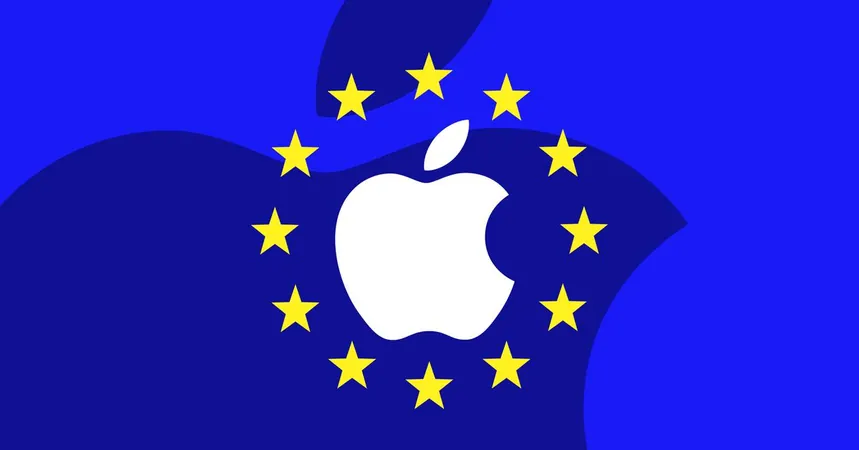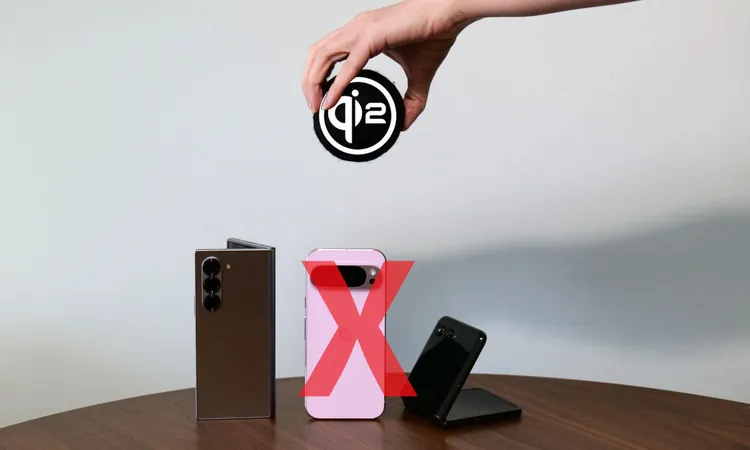
European Union Pressures Apple to Enhance iOS Interoperability: What It Means for Users and Competitors!
2024-12-19
Author: Jacques
Introduction
In a significant move aimed at fostering competition and user choice, the European Union has issued several robust recommendations calling for Apple to enhance the interoperability of its iOS and iPadOS systems with those of its rivals. This initiative comes in the wake of two separate proceedings under the Digital Markets Act (DMA) initiated in September, raising alarms for Apple concerning user privacy and data security.
Draft Recommendations Unveiled
On Wednesday, the EU Commission unveiled draft recommendations intended to make iOS more compatible with a range of third-party devices, including smartwatches, earbuds, and headsets. This move aims to alleviate the current frustration of users who struggle to leverage their Apple devices seamlessly with products from other brands. The proposals also call for improved communication protocols between Apple and developers who seek interoperability, emphasizing the importance of transparency regarding internal features and reasons for potential rejections.
Key Features Proposed
Key features proposed by the EU include enhancements for automatic audio switching, background activities to maintain Bluetooth and network connections, and improved notifications. These adjustments are designed to address long-standing grievances from iPhone users, many of whom have been unable to send quick replies via connected Garmin watches, for instance—the interoperability issue that has been a consistent point of contention.
Data Transfer Improvements
The recommendations also suggest improvements in data transfer capabilities, particularly around features like Airdrop, Airplay, media casting, Wi-Fi sharing, and close-range file transfers. Furthermore, the Commission intends to introduce measures that facilitate device configurations for proximity-triggered pairing and automatic Wi-Fi connectivity, making user experiences much smoother and more integrated.
Apple's Objections
Nonetheless, Apple has voiced strong objections to the DMA's interoperability requirements. In a white paper issued shortly after the EU announcement, Apple flagged concerns about 'data-hungry companies' like Meta, which have made multiple requests for access to Apple's proprietary software tools. Apple expressed that granting such access could significantly undermine user data protections that have become a hallmark of the Apple experience.
Meta's Response
Meta has countered Apple’s claims, alleging that the company is leveraging privacy as a shield against competition. 'What Apple is actually saying is they don’t believe in interoperability,' a Meta spokesperson asserted. 'Every time Apple is called out for its anticompetitive behavior, they defend themselves on privacy grounds that have no basis in reality.'
Feedback and Future Steps
The Commission is inviting feedback from companies eager to achieve interoperability with Apple by January 9, 2025. The proposals can evolve based on the responses received. A legally-binding framework for Apple is anticipated to be finalized by March 2025. Should Apple fail to comply with these recommendations, the EU may initiate a formal investigation as early as next year, potentially leading to fines of up to 10% of Apple’s global annual revenue!
Conclusion
As the tussle between regulation and innovation continues, the outcome of this ongoing saga could reshape not only Apple's approach to interoperability but also the entire tech landscape in Europe. Stay tuned for updates on how this will impact consumers and developers alike!









 Brasil (PT)
Brasil (PT)
 Canada (EN)
Canada (EN)
 Chile (ES)
Chile (ES)
 España (ES)
España (ES)
 France (FR)
France (FR)
 Hong Kong (EN)
Hong Kong (EN)
 Italia (IT)
Italia (IT)
 日本 (JA)
日本 (JA)
 Magyarország (HU)
Magyarország (HU)
 Norge (NO)
Norge (NO)
 Polska (PL)
Polska (PL)
 Schweiz (DE)
Schweiz (DE)
 Singapore (EN)
Singapore (EN)
 Sverige (SV)
Sverige (SV)
 Suomi (FI)
Suomi (FI)
 Türkiye (TR)
Türkiye (TR)